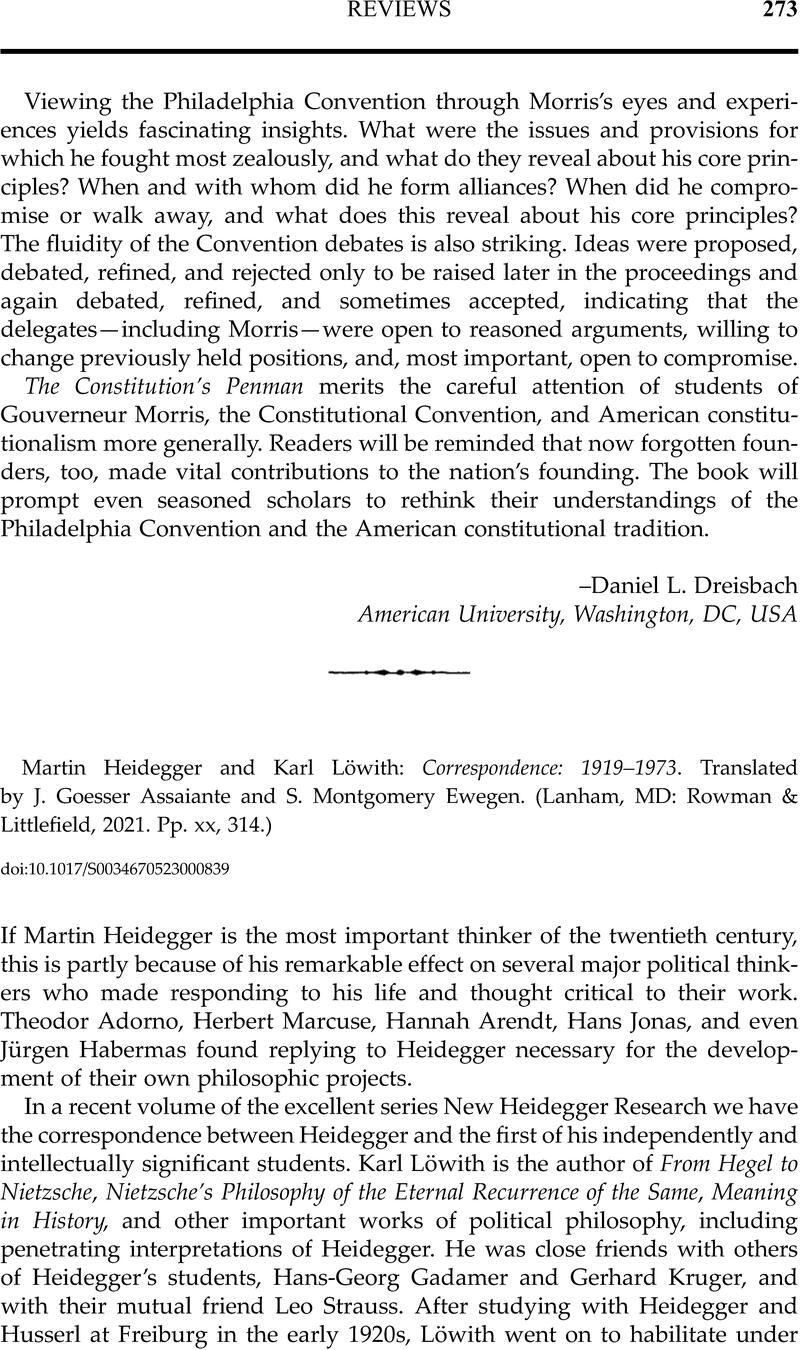No CrossRef data available.
Article contents
Martin Heidegger and Karl Löwith: Correspondence: 1919–1973. Translated by J. Goesser Assaiante and S. Montgomery Ewegen. (Lanham, MD: Rowman & Littlefield, 2021. Pp. xx, 314.)
Review products
Martin Heidegger and Karl Löwith: Correspondence: 1919–1973. Translated by J. Goesser Assaiante and S. Montgomery Ewegen. (Lanham, MD: Rowman & Littlefield, 2021. Pp. xx, 314.)
Published online by Cambridge University Press: 15 January 2024
Abstract
An abstract is not available for this content so a preview has been provided. Please use the Get access link above for information on how to access this content.

- Type
- Book Review
- Information
- Copyright
- Copyright © The Author(s), 2024. Published by Cambridge University Press on behalf of University of Notre Dame


